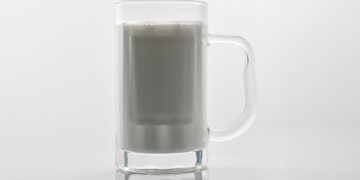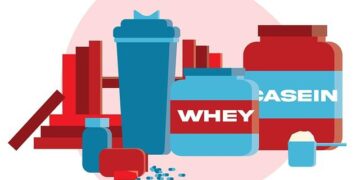Table of Contents
As a veterinary nutritionist with over a decade in this field, I thought I had all the answers. I’ve spent my career formulating diets, consulting on complex cases, and poring over the latest research to give my patients—and my own dogs—the absolute best. But nothing prepares you for the quiet heartbreak of watching your own companion fade.
My Golden Retriever, Leo, was my heart dog. As he entered his senior years, the shadow of osteoarthritis began to creep in. It started with a subtle stiffness in the mornings, a hesitation before jumping onto the couch. Soon, it became a visible, painful limp that stole the joy from our walks and the light from his eyes.
I did everything right. Everything the textbooks and my own professional training dictated. He was on a premium diet, a healthy weight, and of course, a high-dose fish oil supplement. I meticulously calculated the milligrams of EPA and DHA, ensuring he received a therapeutic dose that, by all accounts, should have made a difference.1
But it didn’t.
Weeks turned into months, and despite my best efforts, Leo’s condition barely improved. He was still in pain. Still struggling. I felt a rising tide of frustration and helplessness that so many dedicated dog owners know all too well. You follow the rules, you buy the best products, you do everything you’re told, and still, it’s not enough. It was this professional and personal failure that forced me to question everything I thought I knew about omega-3s. It wasn’t about Leo anymore; it was about a fundamental flaw in how we were all approaching this. We were so focused on the dosage—the numbers on the bottle—that we never stopped to ask the most important question: How much of that oil is actually getting to where it needs to go?
The Epiphany: It’s Not the Cargo, It’s the Delivery System
My frustration with Leo’s stagnation sent me back to the drawing board, not just to veterinary journals, but deep into the worlds of cellular biology and pharmacology. I was looking for a missing piece, a variable I hadn’t accounted for. The breakthrough came from a field that seemed entirely unrelated: logistics and drug delivery science.
That’s when I had my epiphany. The problem wasn’t the omega-3s themselves—the “cargo” of EPA and DHA is undeniably beneficial. The problem was the “delivery system.” This realization gave me a completely new framework for understanding not just fish oil, but all marine oil supplements. I call it the “Specialized Courier” analogy.
Imagine you need to send a vital, fragile package into the heart of a bustling, complex city (your dog’s body). You have two options:
Option 1: Bulk Freight Shipping (Standard Fish Oil)
This is the triglyceride form of omega-3s found in most fish oils.3 The valuable EPA and DHA are packed inside a large, clumsy, fat-soluble container called a triglyceride. This container can’t simply enter the city’s water-based thoroughfares. It has to be sent to a massive, energy-intensive “port authority” (your dog’s digestive system) where it waits for specialized “cranes” (bile salts) to break it apart and emulsify it.4 This process is slow and inefficient. Some of the fragile cargo gets damaged (oxidized) or lost along the way. Only a fraction of the original shipment makes it to its final destination.
Option 2: The Specialized Courier Service (Krill Oil)
This is the phospholipid form of omega-3s found in krill oil. Here, the EPA and DHA are enclosed in a “smart envelope” called a phospholipid. This unique envelope has a special property: it’s both water-soluble and fat-soluble.4 It doesn’t need to go through the main port. It carries its own “key card” that allows it to merge seamlessly into the city’s traffic and deliver its package directly to the “doorstep” of the buildings (your dog’s cells), whose walls are made of the very same phospholipid material.3 The delivery is fast, direct, and incredibly efficient, with minimal loss or damage to the cargo.
This analogy changed everything. It shifted my focus from “How much am I giving?” to “How much is actually being delivered?” The answer, I discovered, was that krill oil was the superior courier, and the proof was in the science.
Pillar I: The ‘Smart Package’: Unlocking Superior Bioavailability
The power of the “Specialized Courier” lies in its molecular structure. The membranes of every cell in your dog’s body are a “phospholipid bilayer.” Because the omega-3s in krill oil are already bound to phospholipids, they are essentially carrying a VIP pass that allows for direct, effortless absorption.5 They are recognized and welcomed by the cells.
The triglyceride structure of fish oil, however, is a foreign format. The body must expend significant energy to break it down, convert it, and repackage it into a usable form.4 This fundamental difference in bioavailability isn’t just a theory; it’s been demonstrated in compelling clinical research.
The most definitive evidence comes from a 2021 study on athletic Alaskan Huskies, dogs whose bodies are under immense physical stress.8 Researchers divided the dogs into two groups. One group received a diet supplemented with fish oil, and the other received a diet supplemented with an equivalent amount of EPA and DHA from krill meal. After six weeks, they measured the “Omega-3 Index”—the actual amount of omega-3s incorporated into the dogs’ red blood cells. This is the metric that truly matters, as it reflects how much of the supplement is actually getting into the body’s tissues.
The results were staggering. The fish oil group saw their Omega-3 Index increase by a respectable 21%. The krill meal group, however, saw their Omega-3 Index skyrocket by 62%.8
This wasn’t a minor difference; it was a monumental leap in efficiency. The krill oil “courier” delivered its payload so effectively that it resulted in a threefold greater increase in usable omega-3s within the body’s cells. Other studies have supported this finding, suggesting that even a lower dose of krill oil can increase blood levels of EPA and DHA by the same amount as a higher dose of fish oil.10
This has profound practical implications for our dogs. Superior bioavailability means a smaller, more concentrated dose can achieve a greater therapeutic effect. This is not only more convenient but also gentler on a dog’s system, significantly reducing the risk of the gastrointestinal side effects, like diarrhea and upset stomach, that are common with the large volumes of oil required when using less efficient fish oil supplements.1 It reframes the entire value proposition: the goal is not to buy the most oil for your money, but to buy the most
effective oil.
Pillar II: The ‘Package Protection’: Astaxanthin, the Antioxidant Bodyguard
Omega-3 fatty acids are incredibly beneficial, but they are also incredibly fragile. Like a delicate piece of machinery, they are highly susceptible to damage from oxidation—a process you can think of as “cellular rust.” When exposed to air and light, these fats can go rancid, rendering them not just useless but potentially harmful by introducing damaging free radicals into the body.12
This is where krill oil reveals its second secret weapon: a powerful, naturally occurring antioxidant called astaxanthin. This is the pigment that gives krill and other crustaceans their vibrant red color, and it plays a crucial dual role in the “Specialized Courier” system.5
First, astaxanthin acts as the package’s personal bodyguard. It is a potent natural preservative that shields the fragile EPA and DHA from oxidative damage during their journey from the ocean to your dog’s cells.4 This ensures the “cargo” arrives intact and fully functional, without the need for the artificial preservatives often added to fish oils. The stability astaxanthin provides means the product stays fresh and potent for longer.7
Second, astaxanthin is a remarkable health-promoting compound in its own right. It’s not just along for the ride; it’s an active participant. Scientists have found astaxanthin to be one of the most powerful antioxidants in nature, with some studies suggesting it is hundreds of times more effective at neutralizing cell-damaging free radicals than Vitamin E.11 This antioxidant power provides its own anti-inflammatory benefits, contributing directly to the health of your dog’s joints, immune system, heart, and even their eyes, where it can help protect against UV damage.3
This makes krill oil far more than a simple omega-3 supplement. It is a synergistic “nutraceutical complex.” The value isn’t just in one ingredient, but in the intelligent combination created by nature. The phospholipids provide the delivery system, the omega-3s provide the core benefit, and the astaxanthin protects the whole package while adding its own unique advantages. Furthermore, krill is also a natural source of choline, another vital nutrient that supports liver and brain function.11 Fish oil, by contrast, is typically just a source of one thing: omega-3s. Krill oil delivers a multi-faceted health solution in a single, elegant package.
Pillar III: The ‘Clean Origin’: A Deep Dive into Purity and Sustainability
When we give our dogs a marine oil, we want to provide the benefits of the ocean, not its pollutants. A significant concern with oils derived from fish is the bioaccumulation of heavy metals like mercury and toxins like PCBs. Because many fish oils are sourced from larger, predatory fish higher up the food chain (like salmon, mackerel, and sardines), these fish have had a lifetime to accumulate toxins from the smaller fish they eat.3
Krill, on the other hand, occupy the very bottom of the marine food chain. These tiny, shrimp-like crustaceans feed primarily on phytoplankton and algae.18 This gives them a profound purity advantage: they simply don’t live long enough or consume other animals to accumulate significant levels of contaminants. Choosing krill oil is choosing a cleaner, purer source from the start.5
However, this brings us to the most critical ethical question: is it right to harvest krill at all? Antarctic krill are a keystone species, the foundational food source for the entire Antarctic ecosystem, feeding everything from penguins and seals to the magnificent blue whale.19 The concern that a booming krill oil market could devastate this fragile environment is valid and must be addressed with facts, not just marketing claims.
For years, this dilemma held me back. But a deep dive into the regulations governing the Antarctic krill fishery revealed a surprising and reassuring truth: the Antarctic krill fishery is one of the most tightly managed and precautionary fisheries on the planet. This is not the wild west; it is a system governed by strict international oversight.
Two key entities ensure this:
- CCAMLR (The Commission for the Conservation of Antarctic Marine Living Resources): This international body, comprised of 27 member countries, takes an extremely cautious approach. It has set the total allowable catch for krill at just 1% of the estimated biomass in the designated fishing area. To put that in perspective, the entire global krill fishing industry currently harvests only about 0.5% of that biomass—just half of the already tiny limit.21 This is a world away from the 10% limits common in other fisheries.
- MSC (The Marine Stewardship Council): This is the gold standard for seafood sustainability. The MSC’s blue fish label is not a simple eco-sticker; it is a hard-won certification granted only after a rigorous, independent, third-party audit.24 To be MSC-certified, a krill fishery must prove that its practices are not only sustainable for the krill population but also that they do not harm the surrounding ecosystem or the predator species that depend on krill.21
Choosing an MSC-certified krill oil is the single most powerful action a consumer can take. It moves beyond the fear-based narrative of “don’t kill krill” to an empowered, evidence-based choice. It means you are actively supporting fisheries that are investing in scientific research, using innovative eco-harvesting technology to minimize by-catch, and adhering to the world’s strictest sustainability standards.22 Your purchase becomes a vote for ocean health.
To make this clear, here is what the MSC blue label actually guarantees:
Table 1: What the MSC-Certified Blue Label Guarantees
| MSC Principle | What It Means in Simple Terms | Why It Matters for the Antarctic |
| Principle 1: Sustainable Target Stocks | The krill population is healthy, abundant, and managed to ensure it can reproduce itself indefinitely. | This prevents the depletion of krill, which forms the foundational base of the entire Antarctic food web.21 |
| Principle 2: Minimizing Environmental Impact | The fishery must actively minimize its impact on the surrounding ecosystem, including other species like whales and penguins, and their habitats. | This ensures that harvesting krill does not cause serious or irreversible harm to the delicate balance of the Antarctic ecosystem.21 |
| Principle 3: Effective Fishery Management | The fishery must be managed responsibly, responding to changing scientific data and adhering to all local, national, and international laws. | This provides a robust framework of accountability and ensures that management practices are precautionary and based on the best available science.21 |
The 2025 Krill Oil Buyer’s Guide: From Theory to Your Dog’s Bowl
Armed with this new framework—understanding the importance of the delivery system, the protective antioxidant, and the clean, sustainable origin—you are no longer just a consumer. You are an informed advocate for your dog’s health. Now, let’s translate that knowledge into a practical shopping list. When you evaluate a krill oil supplement, here is the 4-point checklist to use:
- Verify Antarctic Source & Phospholipid Form: The label should clearly state the oil is from “Antarctic Krill” (Euphausia superba). Look for explicit confirmation that the omega-3s are in a phospholipid-bound form, as this is the key to superior bioavailability.5
- Demand Label Transparency: A quality product will not hide its numbers. The label should clearly list the total combined amounts of EPA and DHA per serving, as well as the astaxanthin content. This allows you to make accurate dosage calculations.27
- Look for the MSC Blue Tick: This is your non-negotiable mark of sustainability. Prioritize products that proudly display the Marine Stewardship Council (MSC) certification seal on their packaging. This is your guarantee that the product is sourced responsibly.7
- Seek Proof of Purity: The most reputable brands go the extra mile to ensure safety. Look for mentions of third-party testing for purity, which verifies the product is free from heavy metals and other contaminants. The best companies can provide a Certificate of Analysis (COA) for their batches upon request.27
To help you apply these criteria, I have compiled a comparative analysis of some of the leading and most readily available krill oil supplements for dogs on the 2025 market.
Table 2: Comparative Analysis of Leading Krill Oil Supplements (2025)
| Product Name | Form | EPA + DHA per Serving | Astaxanthin per Serving | MSC Certified? | Third-Party Tested? | Key Features & Notes |
| Dr. Mercola Antarctic Krill Oil | Liquid Pump | 17.5 mg per pump (0.23 ml) | 8 mcg per pump | Yes 30 | Unstated | Veterinarian-formulated. Uses an airless pump to maintain freshness. Also contains choline. |
| Herbsmith Pure Krill | Powder | 78 mg per tsp (~1.5g) | 180 mcg per tsp | Yes 7 | Unstated | Single-ingredient, whole ground krill meal (not oil), which the company states is a no-waste approach. Very palatable. |
| Vital Choice Wild Antarctic Krill Oil | Softgel | 350 mg per serving (2 softgels) | 200 mcg per serving | Yes 29 | Unstated | Human-grade supplement in fish-gelatin softgels. Molecularly distilled for purity. |
| Grizzly Krill Oil | Liquid Pump | Unspecified (736mg Omega-3 Lipids per tsp) | 4089 mcg per tsp | No (States compliance with WWF/CCAMLR standards) 34 | Unstated | Extremely high astaxanthin content. Specifies omega-3s are in lipid (phospholipid) form. |
| Pet MD Omega 3-6-9 with Krill | Soft Chew | 255 mg per chew (7.5g) | 30 mg per chew | Unstated | Unstated | A blend of krill meal, fish oil, and plant oils. High astaxanthin. Made in USA in inspected facilities.28 |
| Wonder Paws Superhero Omega Max 3X | Liquid | Unspecified | Unspecified (contains krill) | No (NASC/GMP certified) 35 | NASC/GMP Certified | A blend of salmon, cod, and krill oils. Veterinarian-approved. |
| HANZI PETS Tru-Krill | Soft Chew | Unspecified (80mg Krill Oil Concentrate) | 16 mcg per chew | Unstated | Produced in FDA-inspected, cGMP-certified facility 36 | Low-allergen formula. Guaranteed free of industrial pollutants. |
Note: This table is based on information available as of early 2025. Formulations and certifications can change. Always check the product label before purchasing.
The Veterinary Dosing Protocol: A Clear Path Through the Confusion
One of the most chaotic areas for pet owners is dosing. Online sources provide a dizzying and often conflicting range of numbers, leaving people confused and worried about giving too much or too little.4 This confusion arises because recommendations often fail to distinguish between different health goals (e.g., general wellness vs. aggressive therapeutic support) and rarely account for the superior bioavailability of krill oil.
As a veterinarian, my priority is safety and efficacy. Therefore, I have synthesized the most reliable, evidence-based veterinary recommendations into a clear, two-tiered dosing protocol. This protocol is based on the combined total of EPA and DHA in the supplement.
Crucial Caveat: Always consult with your veterinarian before starting any new supplement. This chart is an informed starting point for that conversation. Begin at the low end of any recommended range and increase the dose gradually over a week or two, monitoring for any digestive upset. Due to krill oil’s high bioavailability, you may find that a dose at the lower end of the therapeutic range is sufficient to achieve desired results.
- General Wellness/Maintenance Dose: This is for healthy dogs to support overall wellness, skin and coat health, and provide a baseline of anti-inflammatory support. This dose is based on recommendations in the range of 50-75 mg of combined EPA/DHA per kilogram of body weight (approx. 22-34 mg/lb).4
- Therapeutic Support Dose: This higher dose is intended for dogs needing significant anti-inflammatory support, particularly for conditions like osteoarthritis. Veterinary therapeutic recommendations range from 50 mg/kg all the way up to 220 mg/kg.39 The chart below uses a moderate therapeutic starting point of approximately 100 mg/kg (approx. 45 mg/lb), as recommended by sources like the Canine Arthritis Resources and Education (CARE) group.40 Your vet may advise titrating up from here based on your dog’s specific needs and response.
Table 3: Krill Oil Dosing Protocol for Dogs (Based on Combined EPA+DHA)
| Dog’s Weight | General Wellness Dose | Therapeutic Starting Dose |
| 10 lbs (4.5 kg) | 220 – 340 mg/day | 450 mg/day |
| 20 lbs (9.1 kg) | 440 – 680 mg/day | 910 mg/day |
| 30 lbs (13.6 kg) | 660 – 1,020 mg/day | 1,360 mg/day |
| 40 lbs (18.2 kg) | 880 – 1,360 mg/day | 1,820 mg/day |
| 50 lbs (22.7 kg) | 1,100 – 1,700 mg/day | 2,270 mg/day |
| 60 lbs (27.3 kg) | 1,320 – 2,040 mg/day | 2,730 mg/day |
| 80 lbs (36.4 kg) | 1,760 – 2,720 mg/day | 3,640 mg/day |
| 100 lbs (45.5 kg) | 2,200 – 3,400 mg/day | 4,550 mg/day |
Safety First: Precautions and Potential Side Effects
Krill oil is generally very safe, but no supplement is without potential risks.
- Gastrointestinal Upset: The most common side effect, especially when starting or at high doses, is digestive upset like diarrhea or vomiting. This is why starting low and increasing gradually is essential.1
- Blood Clotting: Omega-3s have a mild blood-thinning (anticoagulant) effect. If your dog is on blood-thinning medication (like warfarin or clopidogrel) or has a known clotting disorder, use krill oil only under the strict supervision of your veterinarian. It’s also standard practice to discontinue use at least two weeks before any scheduled surgery.14
- Seafood Allergies: While rare, a dog with a known allergy to shellfish or other seafood could potentially react to krill oil. Use with caution in these pets.41
- Other Conditions: Use cautiously in dogs with a history of pancreatitis or those who are sensitive to dietary fat.2
Conclusion: Leo’s Second Act and Your New Compass
I started this journey out of desperation, armed with knowledge that felt useless in the face of my own dog’s pain. I ended it with a new sense of clarity and purpose. After I threw out the old playbook and switched Leo from high-dose fish oil to a quality, MSC-certified krill oil based on the “Specialized Courier” principle, the change was nothing short of remarkable.
It wasn’t overnight, but within a few weeks, the light started to return to his eyes. The morning stiffness lessened. One afternoon, I tossed his favorite worn-out tennis ball, a ritual we had all but abandoned. I didn’t expect him to do more than watch it roll. But he didn’t just watch it. He trotted after it—a real, honest-to-goodness trot—and for the first time in over a year, he picked it up and brought it back, his tail giving a slow, steady thump-thump-thump against the floor. It was a small moment, but it meant everything. It was proof that a smarter delivery system had succeeded where brute force had failed.
My hope is that this journey can save you the frustration and heartache I went through. You are no longer at the mercy of confusing labels and conflicting advice. You now possess a new compass—the framework of delivery, protection, and purity—to navigate the world of pet supplements. You have the tools to look beyond the bottle and choose a product based not on marketing claims, but on scientific principles. By choosing wisely, you are making the best possible decision not only for the health and happiness of your beloved dog, but for the health of the precious oceans that provide these remarkable gifts.
Works cited
- Fish Oil for Dogs: Benefits, Dosage, and Vet Pick | PetMD, accessed on August 8, 2025, https://www.petmd.com/dog/general-health/fish-oil-for-dogs
- Fish Oil – VCA Animal Hospitals, accessed on August 8, 2025, https://vcahospitals.com/know-your-pet/fish-oil
- Krill Oil vs Fish Oil For Dogs | Which is the Better Choice? – Mighty Munch AU, accessed on August 8, 2025, https://us.mightymunch.com/blogs/news/krill-oil-vs-fish-oil-for-dogs
- Fish Oil and Other Oils – Raw Feeding Advice and Support, accessed on August 8, 2025, https://www.rawfeedingadviceandsupport.com/fish-oil-and-other-oils
- Krill Oil for Dogs: Omega-3 Rich Supplement · Antinol Plus, accessed on August 8, 2025, https://antinolplus.com/blogs/bark-learn/krill-oil-for-dogs
- Krill Oil vs Fish Oil For Dogs | Which is the Better Choice? – Mighty Munch, accessed on August 8, 2025, https://au.mightymunch.com/blogs/news/krill-oil-vs-fish-oil-for-dogs
- Pure Krill – Herbsmith, accessed on August 8, 2025, https://www.herbsmithinc.com/pure-krill/
- New Study Reveals Omega-3s From Krill Are Most Effective In Alaskan Huskies – QRILL Pet, accessed on August 8, 2025, https://www.qrillpet.com/blog-and-news/new-study-reveals-krill-sourced-omega-3s-most-effective-in-alaskan-husky-diet
- Krill – The Other Fish Oil | The Science Dog, accessed on August 8, 2025, https://thesciencedog.com/2021/01/28/krill-the-other-fish-oil/
- Krill Oil vs Fish Oil: Which Is Better for You? – Healthline, accessed on August 8, 2025, https://www.healthline.com/nutrition/krill-oil-vs-fish-oil
- Krill Health Benefits For Pets | QRILL Pet, accessed on August 8, 2025, https://www.qrillpet.com/krill-health-benefits-for-pets
- What Are Free Radicals and Antioxidants? | Rootine Vitamins, accessed on August 8, 2025, https://rootine.co/blogs/ourscience/free-radicals-vs-antioxidants
- What is oxidative stress and why does it matter to metabolic health? – Levels, accessed on August 8, 2025, https://www.levels.com/blog/what-is-oxidative-stress-and-why-does-it-matter-to-metabolic-health
- Krill Oil for Dogs – DogCancer.com, accessed on August 8, 2025, https://www.dogcancer.com/articles/supplements/krill-oil-for-dogs/
- Krill Oil for Dogs: 6 Benefits of This Omega-3 – PetLab Co, accessed on August 8, 2025, https://thepetlabco.com/learn/dog/nutrition/krill-oil-for-dogs
- What is The Best Krill for Dogs and Cats? – TCVM Pet Supply, accessed on August 8, 2025, https://tcvmpet.com/blogs/news/whats-the-best-krill-for-dogs-and-cats
- Krill: a natural superfood to support pet health – Nutraceutical Business Review, accessed on August 8, 2025, https://nutraceuticalbusinessreview.com/krill-a-natural-superfood-to-support-pet-health
- Antarctic krill – Wikipedia, accessed on August 8, 2025, https://en.wikipedia.org/wiki/Antarctic_krill
- Antarctic krill: Superheroes of the Southern Ocean | NSF – National Science Foundation, accessed on August 8, 2025, https://www.nsf.gov/science-matters/antarctic-krill-superheroes-southern-ocean
- Antarctic Krill: Powering baleen whales in the Southern Hemisphere, accessed on August 8, 2025, https://wwfwhales.org/news-stories/antarctic-krill-powering-baleen-whales-in-the-southern-hemisphere
- Is Antarctic Krill Sustainable – Marine Stewardship Council, accessed on August 8, 2025, https://www.msc.org/en-us/what-you-can-do/choose-sustainable-seafood/sustainable-species/antarctic-krill
- Regulations & certifications – Aker QRILL Company, accessed on August 8, 2025, https://www.theqrillcompany.com/regulations-certifications
- Sustainability | Certifications – Aker BioMarine, accessed on August 8, 2025, https://www.akerbiomarine.com/sustainability/certifications
- www.msc.org, accessed on August 8, 2025, https://www.msc.org/en-us/about-the-msc/what-is-the-msc#:~:text=The%20MSC%20program%20incentivizes%20sustainable,sustainable%2C%20wild%2Dcaught%20seafood.
- Marine Stewardship Council: MSC Certification & Standard – DNV, accessed on August 8, 2025, https://www.dnv.com/services/msc-fisheries-standard-5105/
- Certifications – QRILL Aqua, accessed on August 8, 2025, https://www.qrillaqua.com/krill-certifications
- Krill oil for dogs – the cleanest omega-3 with extra benefits | K9-DogHealth.com, accessed on August 8, 2025, https://www.k9-doghealth.com/natural-ingredients/krill-oil-for-dogs/
- Omega 3-6-9 Select Soft Chews with Krill for Dogs – 60 & 120 Count …, accessed on August 8, 2025, https://petmdstore.com/products/omega-3-6-9-select-soft-chews-with-krill-60-120-count
- MSC Wild Antarctic Krill Oil Dietary Supplement | Vital Choice, accessed on August 8, 2025, https://www.vitalchoice.com/v/marine-supplements/liquid-fish-oils/NSK201
- Antarctic Krill Oil, For Cats & Dogs, 1.45 fl oz (43 ml) – iHerb, accessed on August 8, 2025, https://www.iherb.com/pr/dr-mercola-antarctic-krill-oil-for-cats-dogs-1-45-fl-oz-43-ml/136392
- Premium Private Label Omega-3 Fish and Krill Oil Supplements – Icelandirect, accessed on August 8, 2025, https://icelandirect.com/private-label-omega-3-fish-krill-oil-supplements/
- How to Choose the Best Omega-3 for Dogs – Good Dog People™, accessed on August 8, 2025, https://gooddogpeople.com/blogs/dog-talk/how-to-choose-the-best-omega-3-for-dogs
- Dr. Mercola Antarctic Krill Oil For Cats & Dogs – 1.45 fl oz – Walmart.com, accessed on August 8, 2025, https://www.walmart.com/ip/Dr-Mercola-Antarctic-Krill-Oil-For-Cats-Dogs-1-45-fl-o/5100982213
- Krill Oil Supplement – Grizzly Pet Products, accessed on August 8, 2025, https://grizzlypetproducts.com/product/grizzly-krill-oil/
- Best Fish Oil for Dogs: 10 Vet-Recommended Picks in 2025 – Vetstreet, accessed on August 8, 2025, https://www.vetstreet.com/food-and-treats/dog-supplements/fish-oil-for-dogs
- HANZI PETS Tru-Krill Antarctic Krill Oil Omega-3 & Astaxanthin Dog & Cat Soft Chews, 60 count – Chewy.com, accessed on August 8, 2025, https://www.chewy.com/hanzi-pets-tru-krill-antarctic-krill/dp/168697
- Canine Fish Oil Dosing Chart – College of Veterinary Medicine & Biomedical Sciences, accessed on August 8, 2025, https://vetmedbiosci.colostate.edu/vth/services/orthopedic-medicine/fish-oil-dosing/
- Fish Oil for Dogs [Omega 3]: 5 Vet Picks, Benefits & Side Effects – Sploot Vets, accessed on August 8, 2025, https://www.splootvets.com/post/best-fish-oil-for-dogs-omega-3-benefits-side-effects
- Fish Oil Dosing in Pet Diets and Supplements – Today’s Veterinary Practice, accessed on August 8, 2025, https://todaysveterinarypractice.com/wp-content/uploads/sites/4/2022/03/TVP-2020-0506_FishOil.pdf
- Overview of Omega 3 Fatty Acids for OA – Canine Arthritis, accessed on August 8, 2025, https://caninearthritis.org/article/overview-of-omega-3-fatty-acids-for-oa/
- KRILL OIL: Overview, Uses, Side Effects, Precautions, Interactions, Dosing and Reviews, accessed on August 8, 2025, https://www.webmd.com/vitamins/ai/ingredientmono-1172/krill-oil






